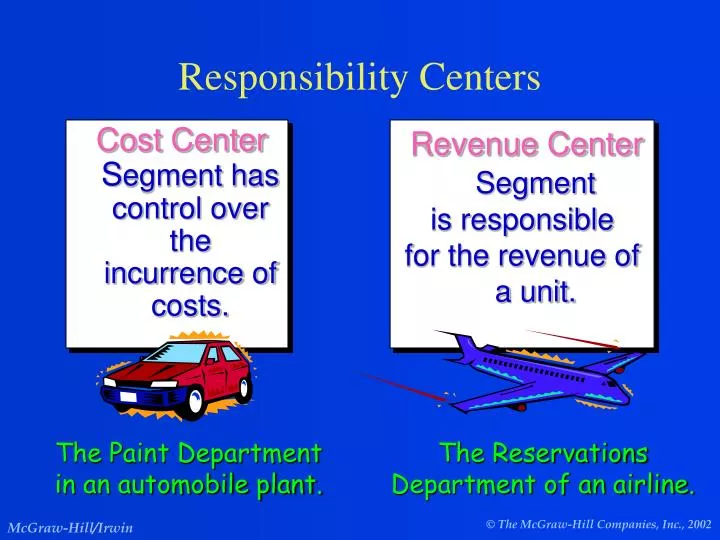Incurrences Car Essentials: Avoid Costly Mistakes
Incurrences Car is a term that relates to the act of incurring expenses or liabilities associated with a vehicle. In Austin, Texas, the concept of Incurrences Car is relevant in various legal and financial contexts, impacting individuals and businesses alike.
Understanding the implications of Incurrences Car is crucial for navigating car insurance claims, contract negotiations, and financial responsibilities related to vehicle ownership. The term "Incurrences Car" may also be used in a broader sense to refer to the overall costs and liabilities incurred in relation to car accidents, maintenance, and operations.
By delving into the intricacies of Incurrences Car, individuals can make informed decisions and protect their interests in the realm of car ownership and usage.

Credit: www.fidelity.com
Essential Car Documents To Carry
When hitting the road, it's crucial to ensure you have all the essential car documents on hand. Whether it's for a routine drive or a long road trip, having the necessary paperwork can save you from unnecessary hassle and stress. Here's a breakdown of the crucial documents you should always carry with you.
Registration And Insurance
First and foremost, your car's registration and insurance documents are non-negotiable. These serve as proof that your vehicle is legally registered and insured, providing protection for both you and other road users.
Emergency Contact Information
In the event of an emergency, having the right contacts readily available is vital. Make sure to have a list of emergency contacts, including family members, friends, and your insurance provider, stored in your car.

Credit: www.slideserve.com
Routine Maintenance Checks
Routine maintenance checks are essential to keep your Incurrences Car running smoothly and to prevent any potential issues. By performing regular maintenance, you can ensure the safety, efficiency, and longevity of your vehicle. Let's take a closer look at the key routine maintenance checks you should prioritize for your Incurrences Car.
Oil And Fluid Levels
Checking the oil and fluid levels in your Incurrences Car is crucial to maintaining its performance and longevity. Regularly inspect the engine oil, transmission fluid, brake fluid, and coolant to ensure they are at the optimal levels. Low oil and fluid levels can lead to engine damage and poor vehicle performance.
Tire Pressure And Tread Depth
Maintaining the proper tire pressure and tread depth is vital for your safety and the overall performance of your Incurrences Car. Use a tire pressure gauge to check that the tires are inflated to the recommended levels. Additionally, inspect the tread depth to ensure it meets the minimum requirements for safe driving.
Emergency Kit Must-haves
When hitting the road, being prepared for unexpected situations is essential. Having the right emergency kit can make a huge difference in ensuring safety and peace of mind during your travels. Here are some must-have items for your car's emergency kit.
First Aid Kit
Every vehicle should be equipped with a well-stocked first aid kit. This kit should include:
- Bandages
- Antiseptic wipes
- Gauze pads
- Adhesive tape
- Tweezers
- Scissors
- Instant cold packs
- Non-latex gloves
- First aid manual
Roadside Assistance Tools
In addition to a first aid kit, it's important to have the necessary tools for roadside assistance. These tools may include:
- Tire iron and jack
- Spare tire
- Jumper cables
- Tire pressure gauge
- Reflective triangles or flares
- Flashlight and extra batteries
- Multipurpose tool or knife
- Duct tape
- Blanket

Credit: us.carousell.com
Understanding Your Car's Warranty
Buying a new car is an exciting experience, but it's important to understand the terms and conditions of your car's warranty to avoid any unexpected expenses in the future. In this post, we'll discuss what you need to know about your car's warranty, including coverage details and how to keep your warranty intact.
Coverage Details
It's important to understand what is covered under your car's warranty. Most warranties cover defects in materials or workmanship, but not normal wear and tear or damage caused by accidents. Some warranties may also have specific mileage limits or time limits.
Additionally, some warranties may have exclusions or limitations, so it's important to read the fine print and understand what is and isn't covered. If you have any questions about your warranty coverage, be sure to reach out to your dealership or manufacturer.
Keeping Warranty Intact
To ensure that your car's warranty remains intact, it's important to follow the manufacturer's recommended maintenance schedule and keep detailed records of all maintenance and repairs. This includes regular oil changes, tire rotations, and other routine maintenance tasks.
It's also important to use only approved parts and fluids for your car, as using non-approved parts or fluids can void your warranty. If you're unsure about what parts or fluids to use, consult your owner's manual or reach out to your dealership.
Finally, if your car does require repairs or maintenance, be sure to take it to an authorized dealership or repair shop. Doing so ensures that the work is done by trained professionals using approved parts and fluids, which helps keep your warranty intact.
Understanding your car's warranty is an important part of car ownership. By knowing what is covered under your warranty and how to keep your warranty intact, you can avoid unexpected expenses and keep your car running smoothly for years to come.
Choosing The Right Insurance
When it comes to owning a car, one of the most important decisions you'll make is choosing the right insurance coverage. Not only is it a legal requirement, but it also provides you with financial protection in case of an accident or other unforeseen event.
Liability Vs. Full Coverage
One of the first decisions you'll need to make when choosing car insurance is whether to opt for liability coverage or full coverage. Liability coverage is the minimum legal requirement and covers damages you may cause to other people or their property in an accident. Full coverage, on the other hand, includes liability coverage as well as coverage for your own vehicle and medical expenses.
While liability coverage may be cheaper, it's important to consider your personal circumstances and the potential financial risk you could face in the event of an accident. If you have a newer or more expensive vehicle, full coverage may provide greater peace of mind and protection.
Understanding Deductibles
Another important factor to consider when choosing car insurance is your deductible. A deductible is the amount you'll need to pay out of pocket before your insurance coverage kicks in. Generally, the higher your deductible, the lower your monthly premiums will be.
It's important to choose a deductible that you can comfortably afford in case of an accident. Keep in mind that while a higher deductible may save you money on your monthly premiums, it could end up costing you more in the long run if you can't afford to pay it in case of an accident.
In conclusion, choosing the right car insurance coverage involves considering your personal circumstances and the potential financial risk you may face in case of an accident. Understanding the difference between liability and full coverage, as well as your deductible, can help you make an informed decision and provide you with the protection you need on the road.
Avoiding Common Car Scams
When it comes to owning a car, it's essential to be aware of the common scams that can cost you time and money. Whether you're a new car owner or have been driving for years, being informed about potential scams can help you avoid unnecessary stress and financial loss.
False Repairs
One common car scam involves dishonest mechanics who may recommend false repairs to make extra money. These repairs can range from unnecessary part replacements to exaggerated maintenance services. To avoid falling victim to false repairs, it's crucial to seek second opinions from reputable mechanics and educate yourself about basic car maintenance. Additionally, always ask for evidence and explanations regarding suggested repairs to ensure transparency and avoid unnecessary expenses.
Tow Truck Scams
Another prevalent scam is related to tow truck services. In some cases, unscrupulous tow truck drivers may exploit vulnerable car owners by towing their vehicles without valid reasons or overcharging for towing services. To safeguard against tow truck scams, it's advisable to have a trusted towing company's contact information on hand and be aware of your rights as a car owner. Whenever possible, try to confirm the legitimacy of the towing request and the associated costs before allowing your car to be towed.
Navigating Post-accident Procedures
Experiencing a car accident can be a distressing and overwhelming situation, but understanding the post-accident procedures can help ease the process. From exchanging information to handling insurance claims, it’s crucial to navigate these steps effectively to ensure a smoother recovery.
Information Exchange
After an accident, the exchange of information is vital for future proceedings. It’s essential to gather the following details:
- Name and contact information of all involved parties
- Driver's license and vehicle registration information
- Insurance details of all parties
- License plate numbers and vehicle descriptions
Insurance Claims
Initiating and managing insurance claims is a critical aspect post-accident. Here are the steps to handle insurance claims effectively:
- Report the accident to your insurance company promptly
- Provide all necessary information and documentation
- Follow up with the insurance company regularly
- Consider seeking legal advice if faced with challenges
Improving Driving Habits
Improving driving habits is essential for enhancing road safety and reducing the risk of accidents. By adopting defensive driving techniques and minimizing distractions, drivers can contribute to a safer and more efficient driving environment.
Defensive Driving
Defensive driving involves staying alert, anticipating potential hazards, and maintaining a safe following distance. By being proactive and cautious, drivers can react effectively to unexpected situations, reducing the likelihood of collisions.
Minimizing Distractions
Minimizing distractions is crucial for maintaining focus on the road. Avoiding activities such as texting, adjusting the radio, or eating while driving can help drivers stay attentive and responsive. Additionally, using hands-free devices for communication can minimize cognitive distractions.
Frequently Asked Questions
What Are Common Incurrences In Car Accidents?
In car accidents, common incurrences include vehicle damage, injuries, and insurance claims.
How Does Incurrence Impact Car Insurance Rates?
Incurrence can impact car insurance rates by leading to premium increases or policy changes.
Is Incurrence Different From Occurrence In Car Incidents?
Yes, incurrence refers to incurring costs or liabilities, while occurrence relates to events happening.
Conclusion
Understanding incurrences in car ownership is crucial for financial protection. Whether it's collision damage or precontract costs, being informed can save you money and hassle. Stay informed, make wise decisions, and protect yourself from unexpected expenses in the long run.



